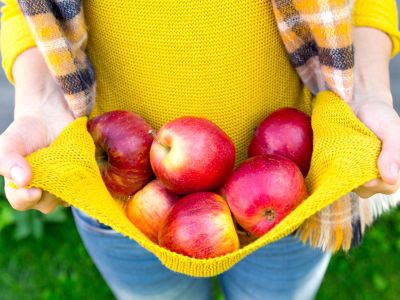Gardening in September
Below are September to-do lists by region.
Northwest
Live in the Pacific Northwest region? Here are some things you should be doing:
Continue to deadhead annuals and perennials to keep them blooming as long as possible.Pick tomatoes and peppers if frost is in the forecast.Divide iris and peonies.Bring green tomatoes indoors to finish ripening.Stop fertilizing trees and flowering shrubs. Tender new growth is likely to be harmed by winter freezes.
West
Things to do in the western region of the U.S. include:
Divide spring-blooming perennials to keep them healthy and vigorous.Plant wildflowers.Fertilize acid-loving plants such as rhododendrons, azaleas, and blueberries.Plant snapdragons, pansies, kale, flowering cabbage, and other cool-weather annuals.Fertilize roses in southern California to encourage fall blooming.
Northern Rockies and Plains (West North Central)
If you’re located in the Northern Rockies or Plains states, here are some September gardening tasks:
Leave seed heads of perennials to sustain songbirds during the winter.Harvest onions as soon as the tops have withered. Let them dry in a warm, dry location for about ten days, then store them in a cool, dark, and dry spot.Pull up annuals. Toss them in the compost pile.Mulch trees and shrubs to provide winter protection.Improve soil conditions by digging compost or manure into the top 1 to 2 inches (2.5-5 cm.).
Upper Midwest (East North Central)
Folks in the Upper Midwest should be doing the following in September:
Plant tulips, daffodils, and other spring-blooming bulbs.Harvest pumpkins and winter squash as soon as the rind hardens. Squash can handle a light frost, but not severe cold.Rake leaves for composting.Plant peonies. Be sure the crowns are planted no more than 2 inches (5 cm.) deep.Pot up parsley, chives, and other herbs and bring them indoors for the winter.
Southwest
If you reside in the warmer Southwest region of the country, here’s a list of things to do:
Fertilize your lawn. Reseed bare spots.Cut back on lawn irrigation to avoid fungal diseases.Keep watering and feeding perennials and annuals in containers.Collect seeds from your favorite perennials and annuals.Plant trees and shrubs when the air is cooling but the ground is still warm.
South Central States
Those in Texas and the surrounding South-Central states might want to take care of the following:
Don’t allow weeds to go to seed.Continue to mow the lawn.Stop fertilizing perennials. To be healthy, they need a period of dormancy.Water, deadhead, and feed roses as new growth is triggered by cooler weather. Plant container annuals for fall color.
Southeast
The southeastern region still has lots to do in September. Here are a few things you may want to do now:
Plant cool-weather vegetables such as beets, carrots, radishes, spinach, cabbage, and broccoli.Fertilize annuals, perennials, and roses a final time for one more burst of color.Fertilize chrysanthemums for late fall blooms.Continue to water annuals, late-blooming perennials, and tropical plants.Plant seeds for lettuce and other greens directly in the garden.
Central Ohio Valley
Do you live in the Central Ohio Valley? Here are some September tasks to take care of:
Put a piece of cardboard or wood under pumpkins to keep them above damp soil.Plant new shrubs and trees. The roots will have plenty of time to settle in before spring.Divide peonies. Replant divisions in a sunny, well-drained spot.Continue to water shrubs and perennials to avoid winter stress.Dig tender bulbs such as dahlias and gladiolus.
Northeast
It may be getting somewhat cooler in the Northeast but there’s still plenty to do in the garden:
Begin planting garlic now for summer harvest.Plant lilies and bare root roses.Continue watering during dry weather.Provide food and water for migrating birds.Divide crowded perennials.
